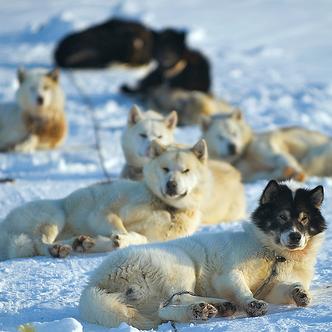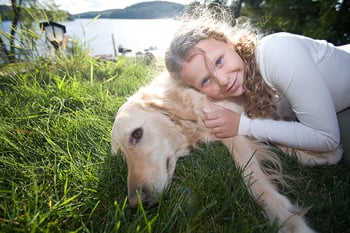As people around the world prepare to ring in the Year of the Dog, it’s worth noting that for many dogs around the world, the year ahead will be nothing to celebrate. We call them “man’s best friend” while often treating them like our worst enemies. But there are simple steps that all of us can take to help improve their lives.
 DSC_0560 | ehemphil2014 | CC BY-ND 2.0
DSC_0560 | ehemphil2014 | CC BY-ND 2.0
For starters, stop wearing leather. PETA Asia exposed a thriving dog-leather industry in eastern China, in which workers bludgeon dogs, slit their throats and peel off their skin to make gloves and other products that are exported across the globe. In the video footage, dogs cry out and writhe in agony after being clubbed over the head with a wooden pole, and some struggle to breathe after their throats are cut. Finally, their skin is torn off.
Many mass-market retailers import cheap Chinese leather—which is often deliberately mislabeled—so there’s no way to tell whose skin you’re really in. The safest and kindest choice is to shun all leather and choose vegan options instead.
When the Westminster Kennel Club Dog Show is on TV, change the channel. Westminster’s promotion of purebreds is not doing dogs any favors. Because of inbreeding and purposely breeding for distorted physical features, approximately one in four purebred dogs suffers from serious congenital disorders such as crippling hip dysplasia, blindness, deafness, heart defects, skin problems and epilepsy.
If your child’s teacher “adopts” an Iditarod musher for the class to track, speak up. Dogs in this race are forced to run nearly 1,000 miles—roughly the distance from Orlando, Florida, to New York City—in under two weeks. That’s about 100 miles every day, with only a few brief periods of rest. They’re subjected to blinding snowstorms, subzero temperatures and treacherous ice. Their feet become bruised and bloodied, and many endure pulled muscles and stress fractures. Some even die, including five in last year’s race and more than 150 since the first Iditarod—and that doesn’t include dogs killed or neglected in the off-season by mushers.

US Mission Canada/cc by 2.0
Call on Texas A&M University to end cruel experiments on golden retrievers and other dogs (visit PETA.org to find out how). Eyewitness video footage obtained by PETA shows dogs who were deliberately bred to develop a crippling and painful form of muscular dystrophy. As the disease ravaged their bodies, they struggled to walk, swallow and even breathe. For more than three decades, dogs have wasted away and died in pain in the university’s laboratories, but not one cure or treatment for reversing the course of the condition in humans has resulted.
Adopt—don’t shop. Animal shelters are filled to the brim with lovable, affectionate dogs who would make wonderful companions—and their lives depend upon being adopted. But when people instead buy animals from breeders, classified ads or pet stores, those potential homes vanish. If you’re determined to have a specific breed of dog, you can still rescue one in need. Having a pedigree doesn’t protect dogs from being tossed out like old furniture when they’re no longer wanted, and many purebreds end up at shelters or breed rescue groups.
Once you’ve found your new best friend (at the animal shelter) remember that dogs don’t want to be locked up in crates or confined to lonely backyard pens. They want to be part of the family. Please let them. When we bring animals into our homes, we have a responsibility to take care of them, to be patient and to love them unconditionally, just as they love us—in spite of chewed-up tables or shredded sofas.
If you already shower your dog with kindness and respect, good human! But please remember the many other dogs who aren’t so lucky. Speak up for them in this Year of the Dog—and beyond.







